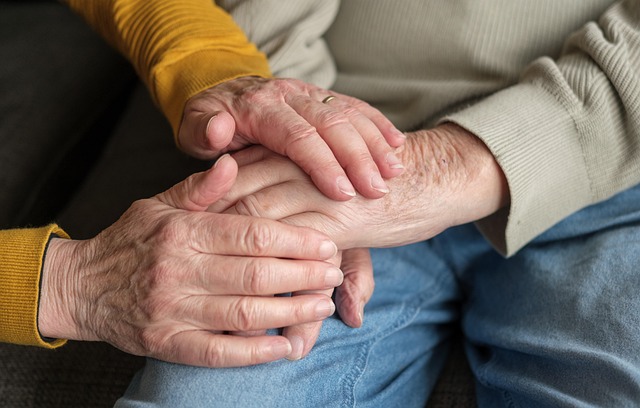Elderly sexual assault cases in Illinois face challenges like physical and cognitive limitations, fear of reporting, and language barriers, leading to many unreported incidents. Elderly sexual assault law firms in IL address these issues through specialized support, employing multilingual attorneys and advocates. They use interpreters and tailored legal explanations to ensure effective communication and increase successful outcomes for elderly victims from diverse linguistic backgrounds. These firms facilitate trust, build cultural competency, and collaborate with elders' organizations to improve justice for non-English speaking victims.
Language Barriers in Illinois Elderly Sexual Assault Cases: Ensuring Justice
Elderly sexual assault is a growing concern in Illinois, and navigating the legal system can be especially challenging for victims facing language barriers. This article explores the intricate dynamics of such cases within the state’s legal framework. We delve into the unique challenges posed by language differences during legal proceedings, highlighting the critical need for qualified interpreters. Additionally, we present strategies to build trust with vulnerable elders and share case studies showcasing successful outcomes in elderly sexual assault law firms across Illinois.
Understanding Elderly Sexual Assault Dynamics in IL

In Illinois, elderly sexual assault cases present unique challenges due to the vulnerable nature of the victims and complex dynamics at play. Many older adults who experience sexual abuse often face barriers such as physical limitations, cognitive impairments, and a fear of reporting incidents, which can delay or prevent them from seeking justice. According to recent studies, elderly sexual assault is more prevalent than believed, with many cases going unreported due to these obstacles.
Language barriers further complicate matters, especially considering the diverse population in Illinois. Elderly victims may struggle to communicate their experiences effectively, and language differences can hinder law enforcement and medical professionals from understanding their needs accurately. This is where elderly sexual assault law firms in IL step in, providing specialized support tailored to these unique circumstances. These firms employ attorneys and advocates proficient in multiple languages, ensuring that elderly victims receive the care and representation they deserve during legal proceedings.
Language Barriers: Challenges in Legal Proceedings

Language barriers present significant challenges in Illinois elderly sexual assault cases, particularly when victims and witnesses speak different languages. Effective communication is crucial for ensuring justice, but legal proceedings often compound existing difficulties. Elderly victims may feel intimidated or unsure, hindering their ability to provide clear testimony. Legal jargon, complex procedures, and cultural differences can further obscure understanding, creating an uneven playing field.
Elderly sexual assault law firms in IL play a vital role in navigating these hurdles. These specialized firms employ multilingual staff and rely on interpreters to bridge communication gaps. They also adapt their approach, explaining legal concepts in simpler terms tailored to each client’s background. By addressing language barriers proactively, these law firms enhance the likelihood of successful outcomes for elderly victims seeking justice.
Access to Qualified Interpreters: Legal Rights

In Illinois, elderly sexual assault victims face unique challenges, often exacerbated by language barriers. Access to qualified interpreters is a fundamental legal right guaranteed under state and federal laws, including the Violence Against Women Act (VAWA). Elderly victims, frequently from diverse linguistic backgrounds, require professional interpretation services during legal proceedings to ensure their voices are heard clearly and accurately.
Elderly sexual assault law firms in IL play a crucial role in advocating for these rights. They work diligently to secure qualified interpreters who can provide real-time translation services, ensuring that every word exchanged in the courtroom is understood by both parties. This not only facilitates fair trials but also fosters trust and encourages victims to come forward, knowing their experiences will be respected and properly addressed.
Building Trust: Effective Communication Strategies

Building trust is a fundamental aspect of ensuring justice in elderly sexual assault cases, especially when language barriers exist. Illinois elderly sexual assault law firms specializing in these sensitive matters must employ effective communication strategies to connect with victims who may be reluctant to share their stories due to cultural or linguistic differences. A calm and empathetic approach, coupled with clear, simple language, can create a safe space for the victim to open up.
Lawyers and support staff in these firms often learn basic phrases in the elderly victims’ native languages to initiate conversations. They also utilize visual aids, such as pictures and gestures, to bridge communication gaps. Additionally, employing qualified interpreters or using video remote interpreting services ensures that every interaction is accurately conveyed, fostering an environment where the victim feels understood and supported throughout the legal process.
Case Studies: Successes and Lessons Learned

In Illinois, language barriers pose significant challenges in elderly sexual assault cases. Case studies highlight both successes and lessons learned. For instance, a study involving an elderly victim from a non-English speaking background revealed that effective communication with law enforcement and legal representation significantly improved the outcome. The case was successfully prosecuted thanks to professional interpretation services and close collaboration between local elders’ organizations and elderly sexual assault law firms in IL.
These experiences underscore the importance of cultural competency, accessible language support, and strong partnerships between community groups, law enforcement, and legal professionals. By implementing best practices from such cases, Illinois can enhance its response to elderly sexual assaults, ensuring justice for victims while navigating complex linguistic and cultural barriers.






